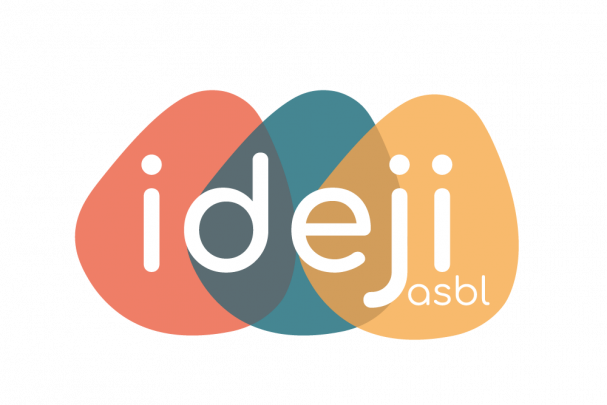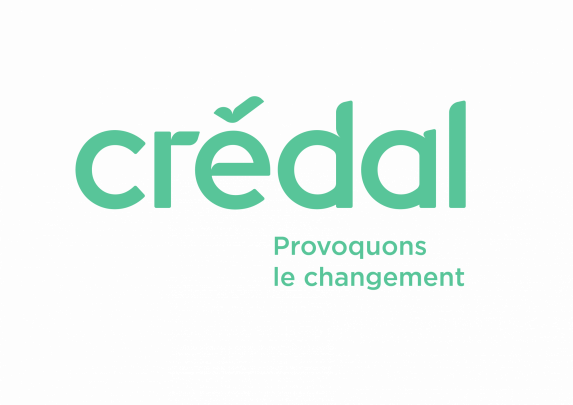Establishing a non-profit organization is a straightforward process, but the primary hurdle lies in its ongoing operation and financial sustainability. Many non-profit entities struggle to support themselves using their own resources, which is often insufficient..
Frequently, such organizations must seek alternative funding sources to guarantee their long-term viability. Consequently, it is valuable to have knowledge of these funding avenues and grasp their dynamics.
These sources can be split into four main categories:
- Financing from members and third parties;
- Financing from public subsidies;
- Financing from the activities of the associations themselves;
- Financing through credit.
Please note
Some subsidies may be combined with others. In all cases, the same invoice cannot be subsidised by different subsidising authorities.
Financing from members and third parties
Contributions
A contribution is a monetary request made by an association to its members to fund its daily expenses.
Donations
We may define a donation as a benefit (financial, material, etc.) that the association receives without having done anything to obtain it. Nothing is given in return for a donation, but the donor may benefit from tax exemption, provided that at least €40 is donated in that calendar year and the association has been approved by the Service Public Fédéral des Finances (Federal Public Service for Finance). The association must issue a tax certificate ("receipt") for the donation it has received. This can be done by a company or foundation or by a private individual. A reliable list of sponsors is available at https://because.eu/en (good causes).
Sponsoring
Sponsorship is the granting of financial support to an organisation or event in return for special visibility for the sponsor's name or logo. The sponsor always intends to gain something, for example, an increase in awareness or a strengthening of its internal or external brand image. The general idea behind this approach is that the more the company is known and appreciated by the public, the more sympathy it will receive from potential customers...
Patronage
Patronage is when an organisation or activity is supported without the name of the company or patron being visibly associated with it. In short, the patron receives no direct or measurable reward in terms of publicity or image. Patrons therefore have somewhat philanthropic intentions, arising from selfless, personal callings (idealism, support of a cause).
Crowdfunding
Crowdfunding is where individuals or associations present their projects, most often online, and several people can invest an amount of their choice in the projects they consider useful. This can be done with or without something in return.
Calls for project bids from foundations
Calls for projects (for specific audiences, geographical areas or fields of action) offer real opportunities for associations. There are many foundations recognised as being of public utility, corporate foundations and endowment funds, which are involved in a number of causes. Some fund projects directly, others operate indirectly. Their fields of intervention vary according to their sensitivity or the orientations they adopt.
The King Baudouin Foundation is one of the most active foundations in Belgium, supporting hundreds of projects every year. (The source of the money is philanthropic, so there is sometimes less pressure on the charity). This can supplement public funding.
Public contracts
A public contract may concern works to be carried out, services to be rendered or supplies to be delivered on behalf of the federal State, the federated entities and all levels of power in the Kingdom, as well as parastatals. They are awarded following a call for tenders (or "public procurement procedure"). For Belgium, the e-Procurement portal contains announcements of public contracts.
Service clubs
These are certainly not avenues to be ignored, despite being more local. The members of service clubs pool their skills and commitment to help the community, and primarily those who need it the most, such as people living in poverty, disabled people, and people with illnesses. Cultural enrichment and the protection of young people are regularly part of their programmes. Examples of Service Clubs include the Lions Club, the Rotary Club, the Kiwanis Club and the Fifty-One Club.
IMPACT INVESTORS
Impact investing - or social impact investing - is part of socially responsible investment and sustainable development.
The Lita website lists sustainable projects and gives investors a chance to find serious projects to support.
F'in Common de Financité is a financing cooperative.
Financing from public subsidies
Subsidies or grants
This is financial assistance granted by a public authority (an authority of the state, community, region, province or commune) to a legal entity, with the aim of promoting the public-interest activity to which this entity is dedicated.
Communes, the French Community Commission (COCOF), the Wallonia-Brussels Federation, the federal State, and the European Union may provide contributions to support associations.
The Brussels Region, via its Brussels Economy and Employment administration, can also subsidise associations, provided they meet the eligibility criteria (carrying out an economic activity, belonging to one of the supported sectors, etc.).
Please note
Ideally, a non-profit organisation should be self-financing and rely solely on subsidies as a back-up or additional source of funding.
There are some disadvantages to applying for subsidies, and you need to be aware of them beforehand:
- It takes time to draw up the application (and costs a bit of money if you need support).
- You have to apply to the relevant public authority, because a public authority will not be able to grant a subsidy outside its area of competence. This requires a minimum of knowledge about the remit of local authorities, regions, etc.
- There are eligibility criteria for receiving certain subsidies. For example, a certain number of years of existence is sometimes required.
- Subsidies often decrease from year to year
- The association is dependent on elected politicians.
Financing from the activities of the associations themselves
Since the entry into force of the new Code of Companies and Associations (CSA) on 1 May 2019, non-for-profit organisations may carry out commercial activities without restriction, whereas in the past this had to remain incidental. However, profits must be allocated to the association's social purpose and may not be redistributed to members, administrators or employees.
Fundraisers
Any non-for profit organisation can organise support events such as shows or dinners. This type of event allows associations to raise funds but also to publicise their activities and attract new members.
Profit-generating activities
As explained above, an association can also carry out purely profit-making activities on an unlimited basis, such as selling goods or services. The association can therefore generate a turnover and thus cover its costs, in whole or in part. It should be noted that if the association carries out profit-making activities, it will be subject to corporation tax.
Financing through credit
In order to finance their larger investments, associations can also take out a loan with a bank or other financial institution. For example, a loan may be considered for the purchase of equipment, the renovation of premises, a property purchase, etc.
If the association receives subsidies, it will often have to find a way to pre-finance them. Indeed, it may take several months for the funds to be paid out and the association generally already has to incur costs to carry out the actions for which it has received the subsidies. If the association does not have sufficient own funds for this pre-financing, it can, for example, use a cash credit.
Pre-financing can also be used for future income. For example, income from an event which will take place in several months' time but which requires costs to be incurred from the outset (room hire, advance payment for catering, etc.).
Two Brussels-based organisations offer loans to non-profit organisations
1. Finance&Invest.brussels
To benefit from one of their products, the registered office of the non-profit association may be in Brussels, Flanders or Wallonia, but the unit of establishment for which the investment is planned must be located in Brussels.
-
Proxi loan: This is a loan where private savings are mobilised.
It meets a number of conditions, in particular that the lender must have no family ties with the non-profit organisation, that the non-profit organisation must be in Brussels, and that the lenders must be residents of Brussels.
The lender will have a tax advantage because Finance.brussels communicates this to the FPS Finance.
The rate is advantageous for the loan: 4% for the first 3 years and then 2.4% for the following years.
In the event of bankruptcy, 30% of the remaining debt can be deducted for tax purposes. -
the CITIZ US loan (intended for companies and associations serving a social cause): you can borrow up to EUR 100,000 at a rate of 4%, and on top of that benefit from support.
-
FIB can also offer guarantees and subordinated loans provided that the association :
- is regularly involved in an economic activity;
- is not owned for more than 25% of the voting rights by one or more public bodies;
- is not owned for more than 50% by a public holding/venture capital company, universities, small local authorities.
A guarantee of this kind can have a leverage effect on obtaining a bank loan. The guarantee works like an insurance policy, which only comes into play when you are no longer able to repay your business loan, and the bank cancels your loans and demands the full amount still to be repaid. This is often useful in the event of dissolution or cessation of business. If, on the other hand, the non-payment is due to a temporary cash flow problem, then it's better to negotiate a 'grace period' with the bank straight away, where you get the bank to waive your monthly repayments for a few months, until the money starts flowing in again and you can start making your monthly repayments again. The bank is interested in spreading the risk over several players.
2. Crédal (FR)
- via their loans to associations and collective projects
- Eligible areas of activity :
- Sustainable investments
- Solidarity loans: investment loans (3 to 25 years) and cash flow loans (3 to 12 months) for amounts of EUR 2,500 to EUR 1,000,000. EUR. Customers are also invited to take out cooperative shares with Credal.
Automatic employment aid
- 1. Activa plan of Actiris. All that is required is that the person hired meets the conditions to qualify for the aid.
- 2. At federal level: max EUR 3,100 per quarter for the first recruitment.
Who can help me ?





